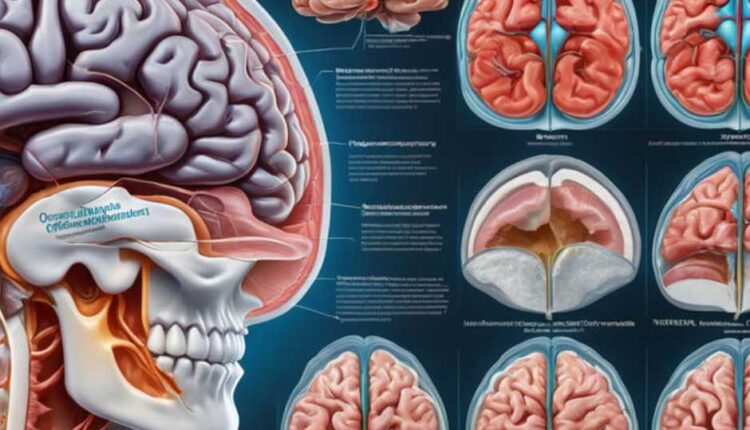Our brains are the command center of our bodies, responsible for everything from our thoughts and emotions to our physical functioning. Yet, despite its vital importance, many of us neglect the health of this remarkable organ. In today’s fast-paced world, it’s easy to overlook the signs of a brain in distress, often until it’s too late. But the good news is that by understanding brain malignancy symptoms and adopting proven strategies for brain health, we can take proactive steps to safeguard this precious resource. Join us as we delve into the secrets of a healthy brain and explore the steps you can take to keep your mind sharp, focused, and resilient.
Understanding Brain Malignancies: Recognizing the Early Warning Signs
Brain malignancies, also known as brain cancers or brain tumors, are abnormal growths that develop within the brain itself or the surrounding tissues. While the thought of a brain tumor can be understandably frightening, it’s important to understand that not all brain malignancies are created equal. Some are benign, meaning they are non-cancerous and pose little immediate threat, while others are more aggressive and can have devastating consequences if left unchecked. The key is to recognize the early warning signs and seek medical attention promptly.
In an interview with Dr. Emma Benson, a renowned neurologist specializing in brain health, she emphasizes the importance of early detection and prevention when it comes to brain malignancies.
One of the biggest challenges we face with brain tumors is that the symptoms can often be subtle and easy to overlook, especially in the early stages. That’s why it’s so crucial for people to be aware of the warning signs and to seek medical attention promptly if they experience any concerning changes in their health or cognitive function.
– Dr. Emma Benson.
Common Symptoms of Brain Malignancies
The symptoms of brain malignancies can vary widely depending on the size, location, and type of tumor. However, there are some common warning signs that everyone should be aware of. These include:
- Persistent headaches: Headaches that are severe, persistent, and unresponsive to over-the-counter medication can be a sign of increased intracranial pressure caused by a brain tumor.
- Seizures: Unexplained seizures, especially in older adults, can be an early indicator of a brain malignancy.
- Vision changes: Blurred vision, double vision, or loss of peripheral vision can occur if a tumor is pressing on the optic nerves or affecting the visual cortex of the brain.
- Personality changes: Sudden mood swings, irritability, or even changes in cognitive function can be signs of a brain tumor.
- Balance and coordination issues: Difficulty walking, loss of balance, or clumsiness can result from a tumor affecting the cerebellum or other motor centers of the brain.
- Nausea and vomiting: Increased intracranial pressure from a brain tumor can cause nausea and vomiting, especially in the morning.
Strategies for Maintaining a Healthy Brain
While the thought of a brain malignancy can be daunting, the good news is that there are many proactive steps we can take to support overall brain health and reduce the risk of cognitive decline. Dr. Benson also stresses the value of adopting a proactive, holistic approach to brain health.
While we can’t always prevent the development of brain malignancies, there are many evidence-based strategies that can help support overall brain function and resilience. Things like a healthy diet, regular exercise, and mentally stimulating activities can go a long way in keeping our brains sharp and reducing the risk of cognitive decline.
– Dr. Emma Benson.
Here are some expert-recommended strategies:
- Exercise regularly: Engaging in regular physical activity, such as aerobic exercise, strength training, or yoga, has been shown to improve blood flow to the brain, boost cognitive function, and reduce the risk of dementia.
- Eat a brain-healthy diet: Consuming a diet rich in antioxidants, healthy fats, and omega-3 fatty acids can help protect the brain from inflammation and oxidative stress. Foods like fatty fish, leafy greens, berries, and nuts are particularly beneficial.
- Prioritize sleep: Getting enough high-quality sleep is crucial for brain health, as it allows the brain to rest, repair, and consolidate memories.
- Engage in mentally stimulating activities: Challenging your brain with activities like puzzles, learning a new skill, or reading can help strengthen neural connections and improve cognitive function.
- Manage stress: Chronic stress can have a detrimental effect on the brain, leading to inflammation and even neurodegeneration. Practice stress-reducing techniques like meditation, deep breathing, or mindfulness.
- Stay socially connected: Maintaining strong social ties and engaging in activities with others has been linked to better cognitive function and a lower risk of dementia.
She encourages individuals to be their own advocates when it comes to their brain health.
Don’t hesitate to speak up if you’re experiencing any unusual symptoms or changes in your cognitive abilities. The sooner we can identify and address any potential issues, the better the outcome is likely to be. – Dr. Emma Benson.
Conclusion
Our brains are the command center of our bodies, responsible for our thoughts, emotions, and physical functioning. Yet, despite their vital importance, many of us neglect the health of this remarkable organ. By understanding the early warning signs of brain malignancies and adopting proven strategies for brain health, we can take proactive steps to safeguard this precious resource.
From recognizing the symptoms of brain tumors to implementing evidence-based lifestyle choices, this article has provided a comprehensive guide to maintaining a healthy brain. By staying informed, being vigilant about any changes in our cognitive abilities, and seeking prompt medical attention if needed, we can work towards a future where brain malignancies are detected and addressed early, allowing us to live longer, healthier, and more fulfilling lives.
Remember, the key to a healthy brain is a holistic approach that encompasses physical, mental, and emotional well-being. By making brain health a priority, we can unlock the secrets to a sharper, more resilient mind and enjoy the many benefits of a life-long commitment to cognitive well-being.
Frequently Asked Questions (FAQs)
Q: What are the most common types of brain malignancies?
A: The most common types of brain malignancies include gliomas, meningiomas, and pituitary adenomas. Gliomas, which originate from glial cells in the brain, are the most prevalent type of brain tumor, accounting for approximately 80% of all malignant brain tumors.
Q: Can brain malignancies be prevented?
A: While we can’t always prevent the development of brain malignancies, adopting a healthy lifestyle and proactively addressing any concerning symptoms can significantly reduce the risk. Strategies like maintaining a balanced diet, exercising regularly, and engaging in mentally stimulating activities have been shown to support overall brain health and resilience.
Q: What is the treatment for brain malignancies?
A: The treatment for brain malignancies can vary depending on the type, size, and location of the tumor, as well as the individual’s overall health and preferences. Common treatment options include surgery, radiation therapy, chemotherapy, and targeted drug therapies. In some cases, a combination of these approaches may be necessary.
Q: Can brain malignancies be cured?
A: The prognosis for brain malignancies can vary widely, depending on the type of tumor and the stage at which it is diagnosed. While some types of brain tumors can be cured, especially when caught early, others may be more challenging to treat effectively. Ongoing advancements in medical research and treatment options are continuously improving outcomes for those affected by brain malignancies.
Related Topics
- Chlorogenic Acid (CGA): The Secret Nutrient For Optimal Health
- Cochlear Implants: A Transformative Journey To Hear Again
- Dehydration Symptoms: 10 Signs You’re Not Drinking Enough Water
- Dementia And Lewy Body Disease: A Brief Guide For Beginners
- Healthy Teeth And Gums: A Comprehensive Guide To Optimal Oral Health
Cardio FLEX Reviews: Unveiling the Truth about Cardiovascular Health Support
Cortexi Reviews – Unveiling the Power of the Ultimate Nootropic Formula
Gluconite Review – A Comprehensive Analysis of Safety and Effectiveness
Ikaria Lean Belly Juice Reviews – The Ultimate Weight Loss Solution
Java Burn Reviews: A Revolutionary Approach to Boosting Metabolism
Liv Pure Reviews: to Achieve Your Weight Loss Goals
ProDentim Reviews: Solution for Dental and Gum Problems
Puravive Reviews: A Detailed Analysis of Discovering the Essence
Quietum Plus Reviews: Unlocking the Secrets to Optimal Ear Health and Clear Hearing
Sugar Defender Reviews: The Importance of Blood Sugar Management
Sumatra Slim Belly Tonic Reviews: Discover its Power for Healthy Weight Loss


[…] Recognizing and Preventing Brain Malignancy Symptoms […]